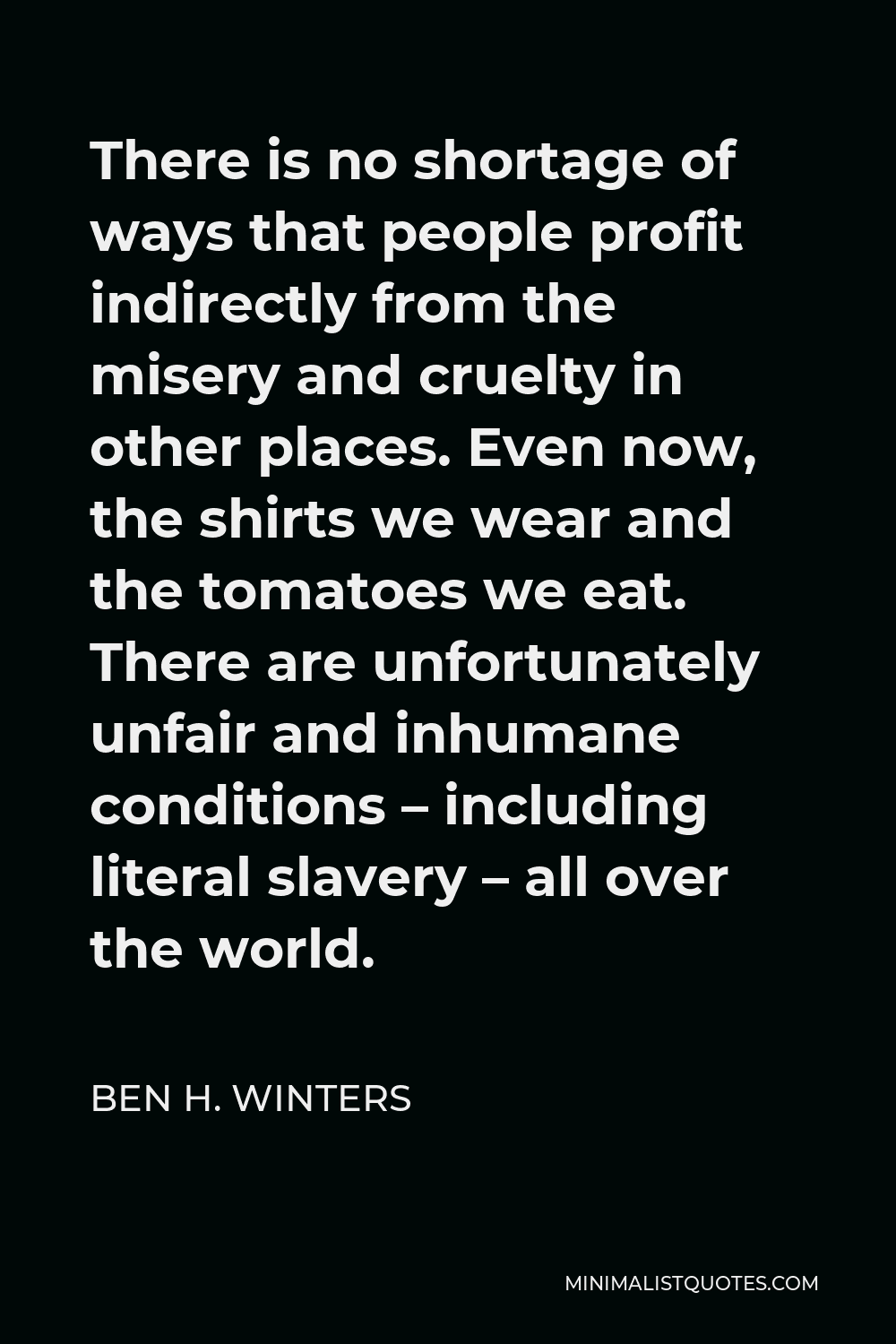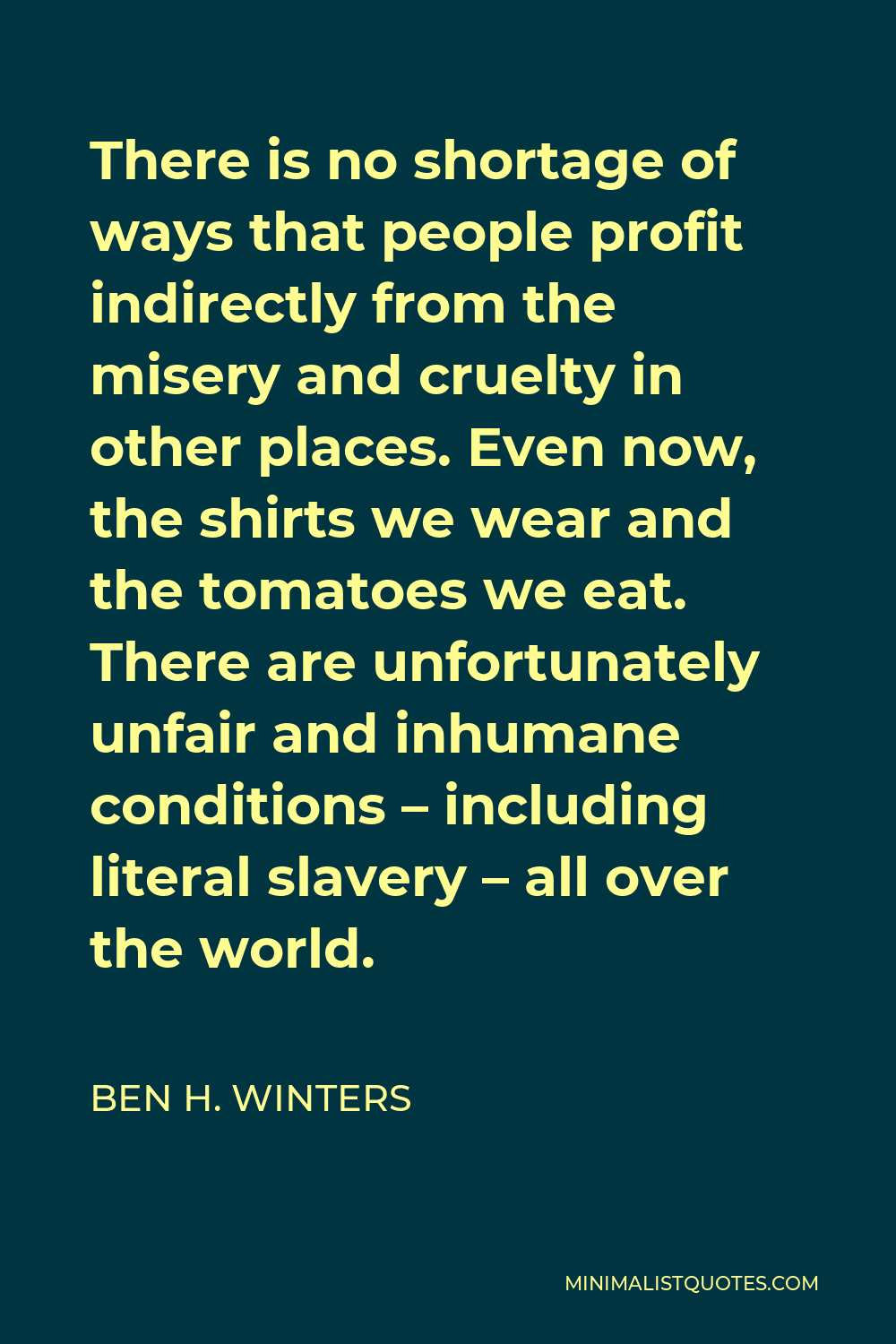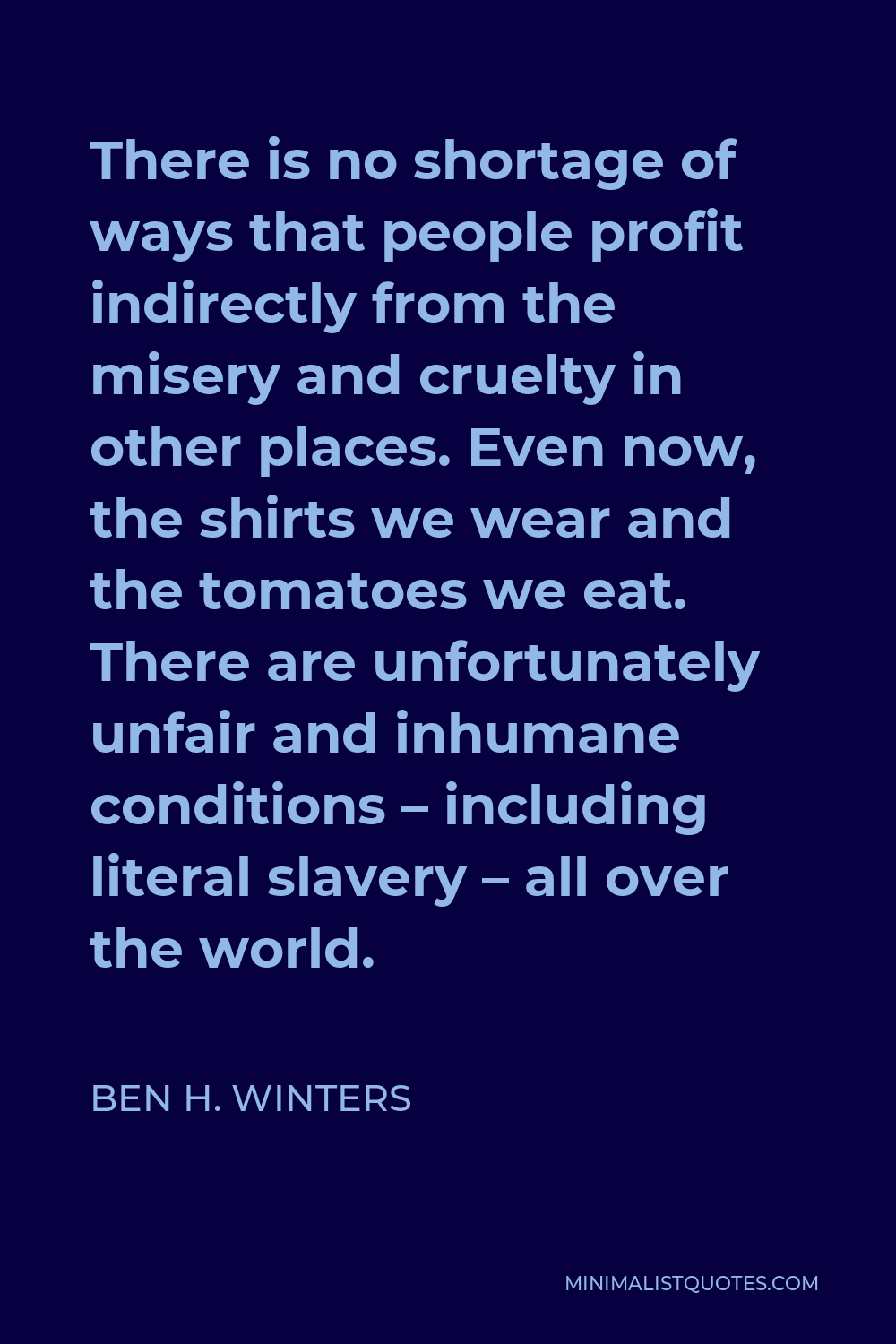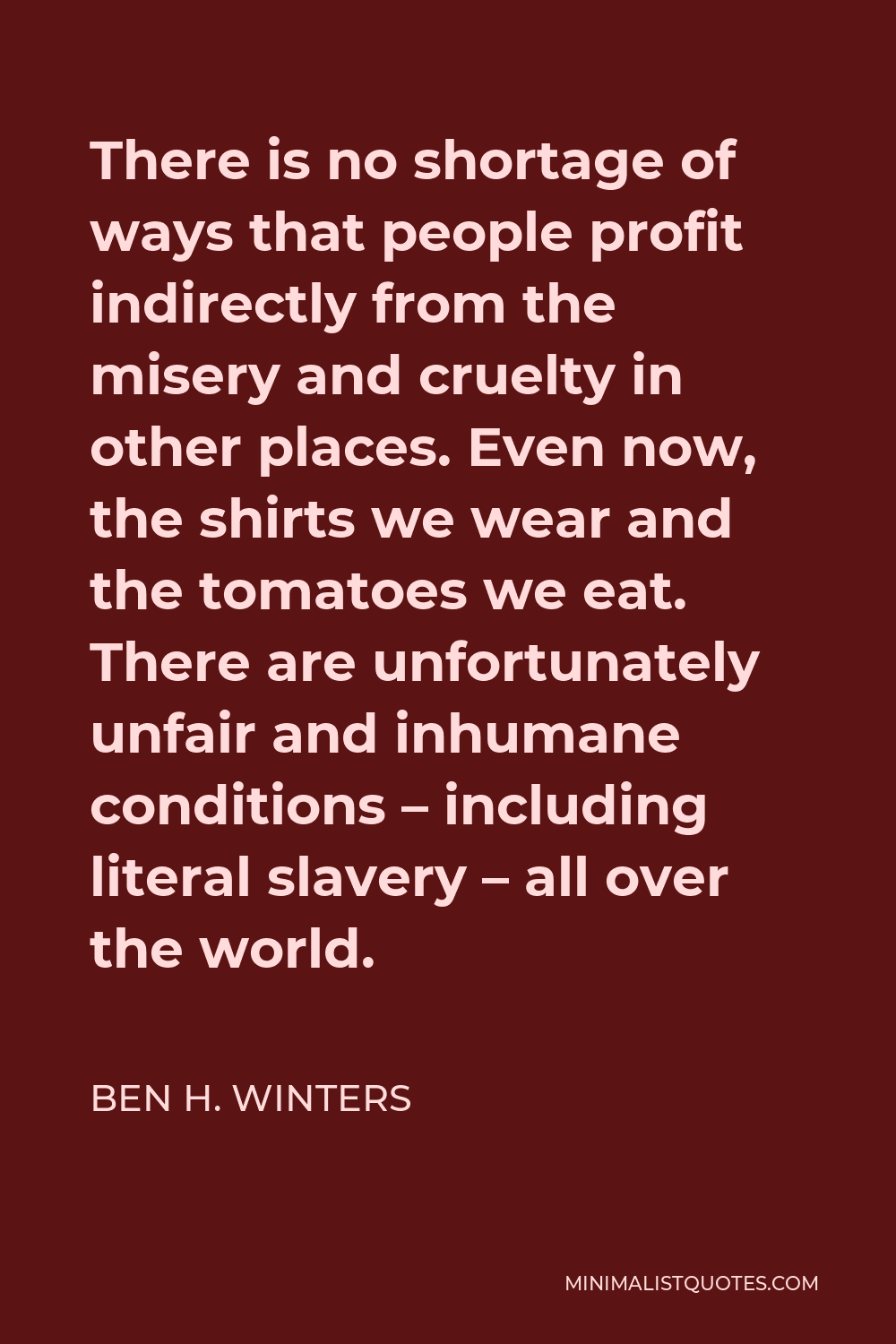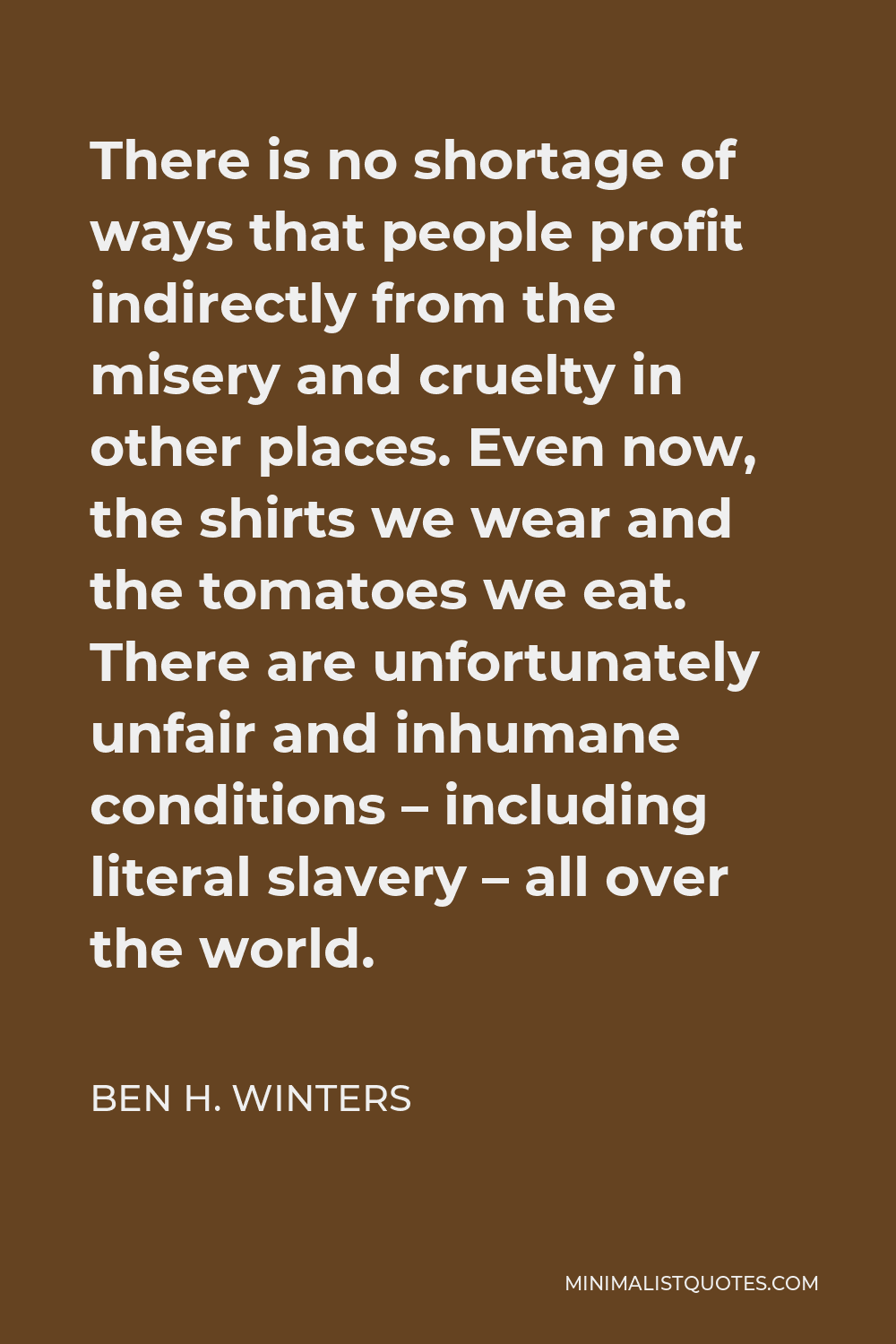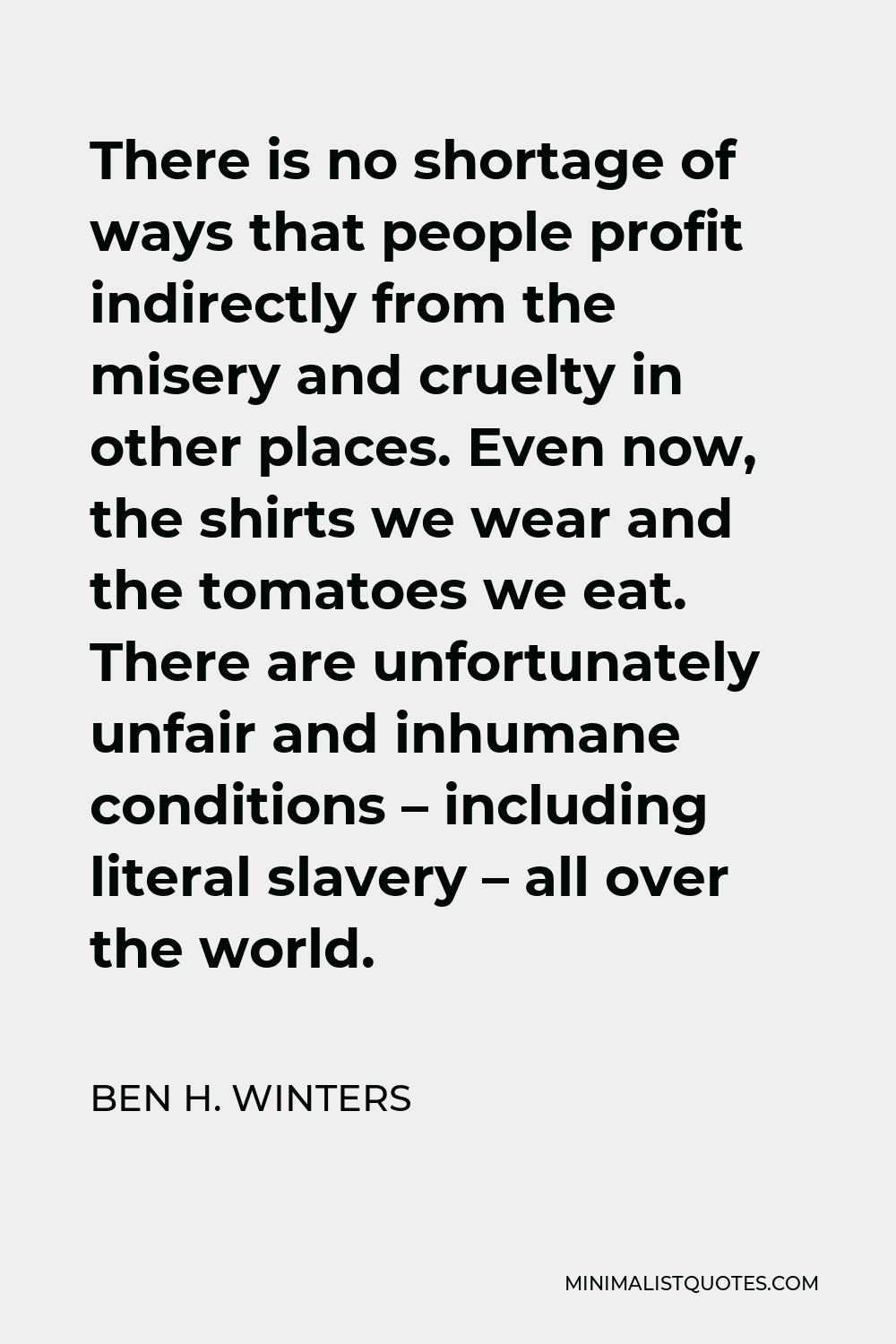There is no shortage of ways that people profit indirectly from the misery and cruelty in other places. Even now, the shirts we wear and the tomatoes we eat. There are unfortunately unfair and inhumane conditions – including literal slavery – all over the world.
BEN H. WINTERSThere is no shortage of ways that people profit indirectly from the misery and cruelty in other places. Even now, the shirts we wear and the tomatoes we eat. There are unfortunately unfair and inhumane conditions – including literal slavery – all over the world.
More Ben H. Winters Quotes
-





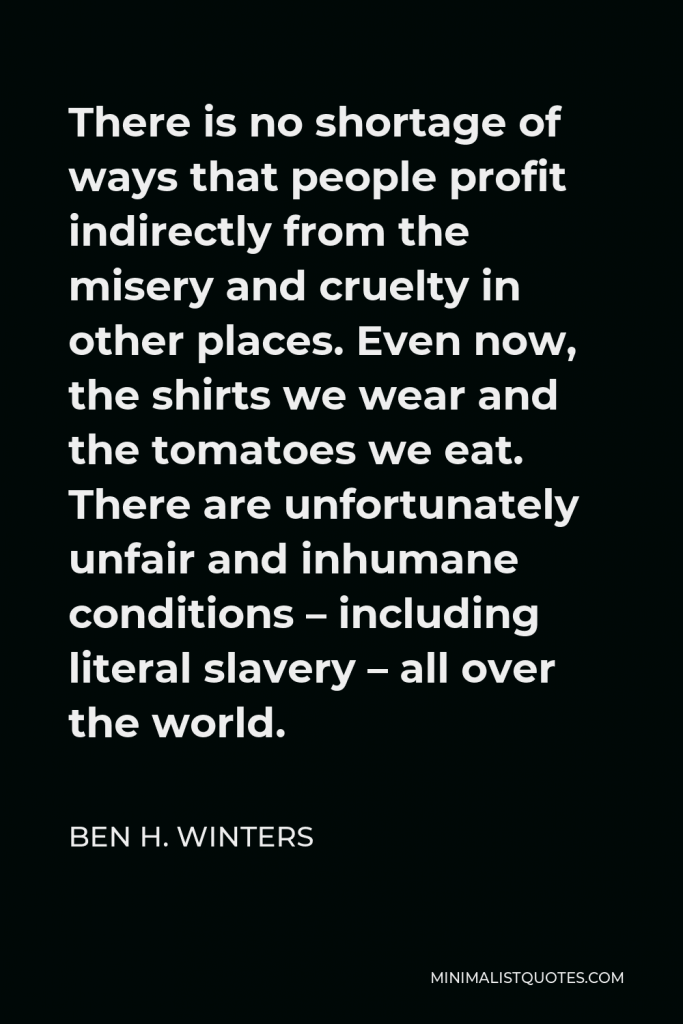

-





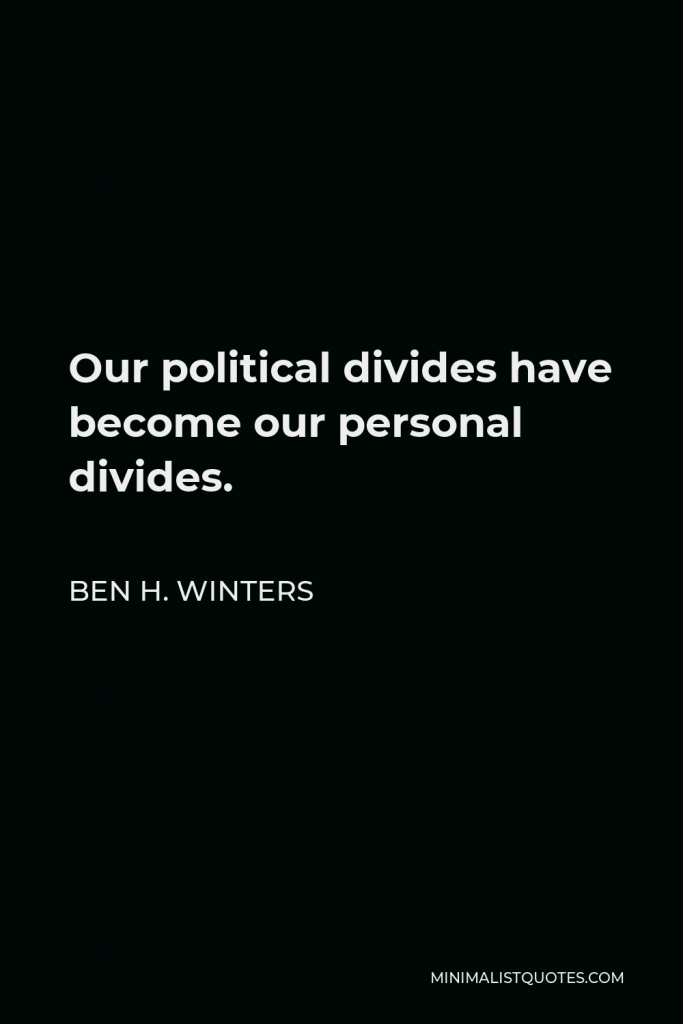

Our political divides have become our personal divides.
BEN H. WINTERS -





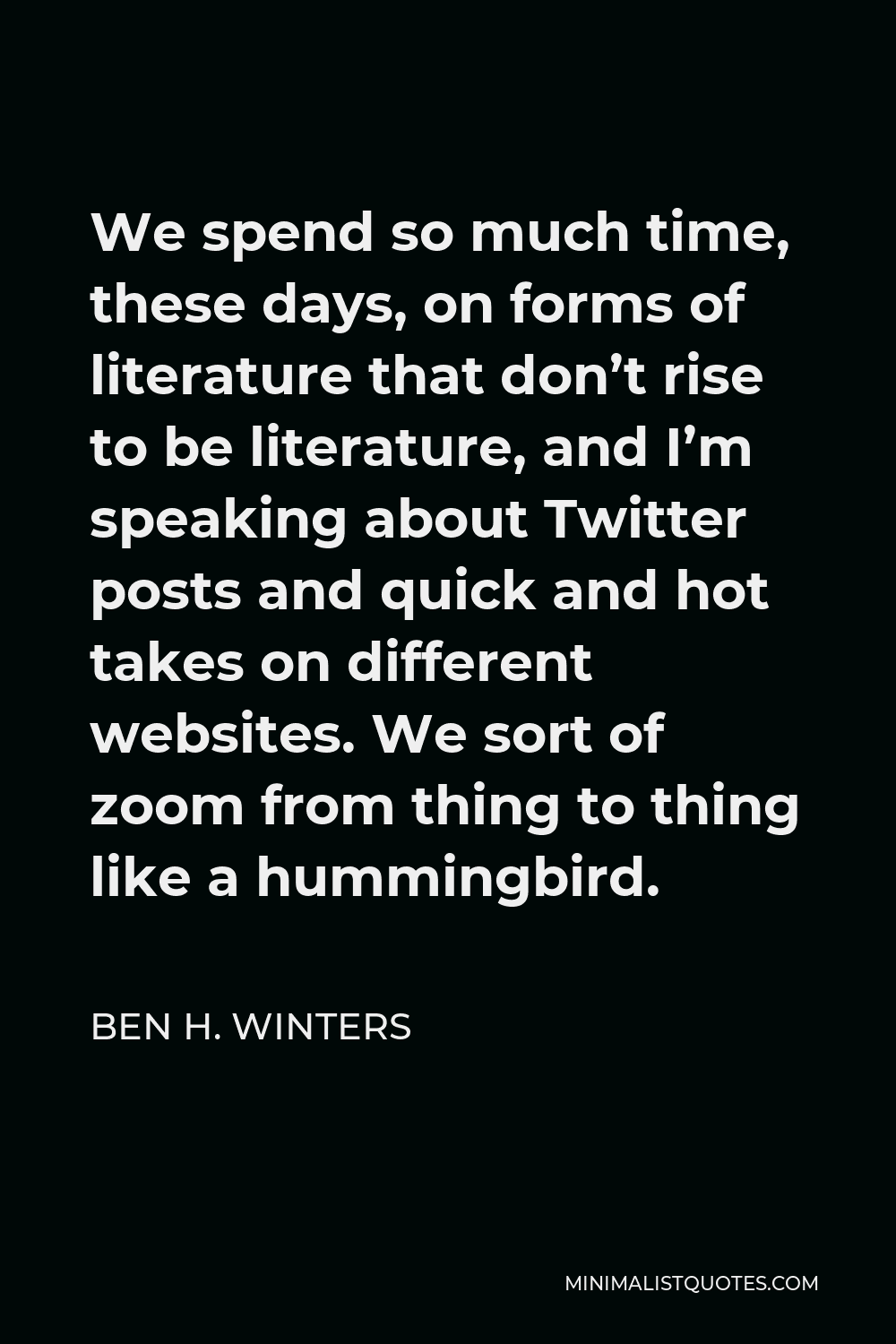
We spend so much time, these days, on forms of literature that don’t rise to be literature, and I’m speaking about Twitter posts and quick and hot takes on different websites. We sort of zoom from thing to thing like a hummingbird.
BEN H. WINTERS -





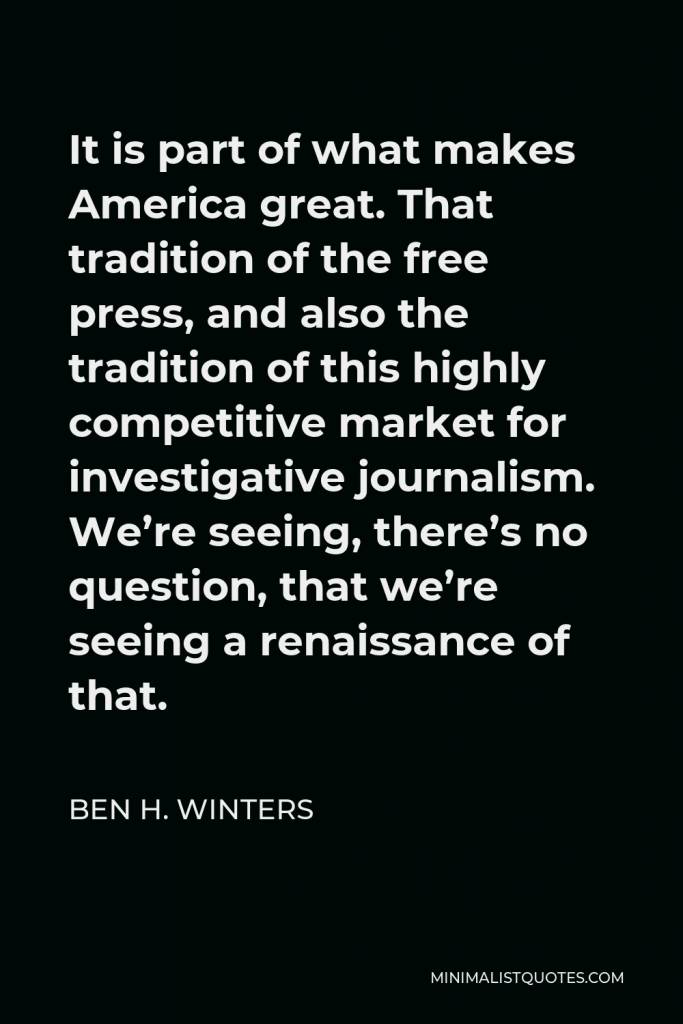

It is part of what makes America great. That tradition of the free press, and also the tradition of this highly competitive market for investigative journalism. We’re seeing, there’s no question, that we’re seeing a renaissance of that.
BEN H. WINTERS -





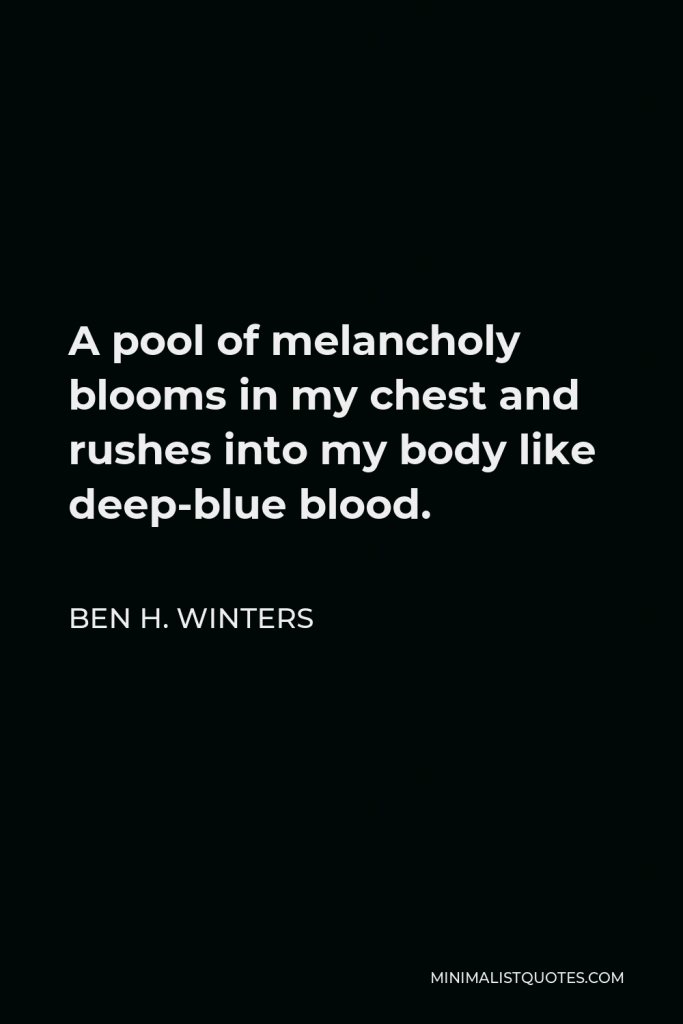

A pool of melancholy blooms in my chest and rushes into my body like deep-blue blood.
BEN H. WINTERS -





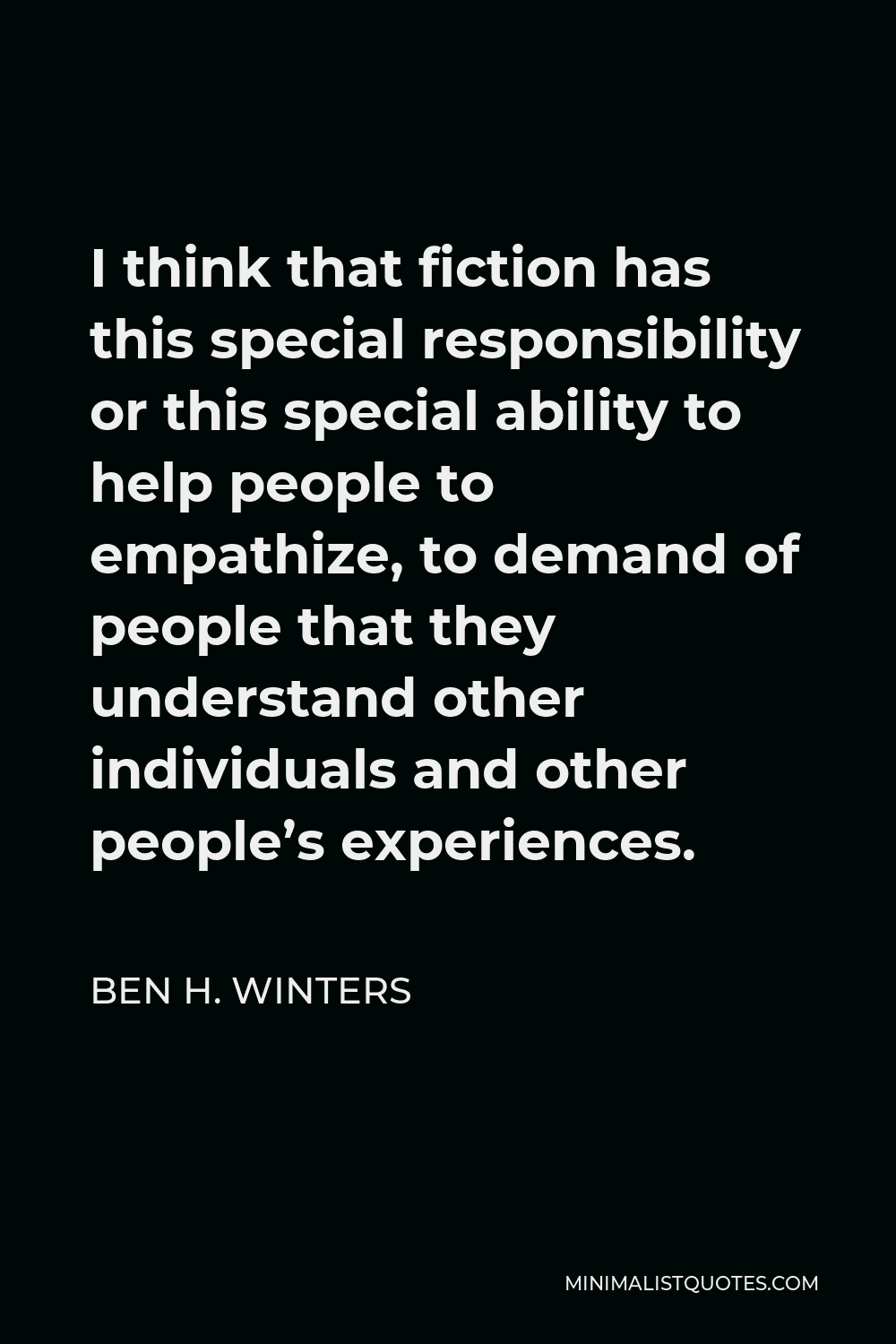
I think that fiction has this special responsibility or this special ability to help people to empathize, to demand of people that they understand other individuals and other people’s experiences.
BEN H. WINTERS -





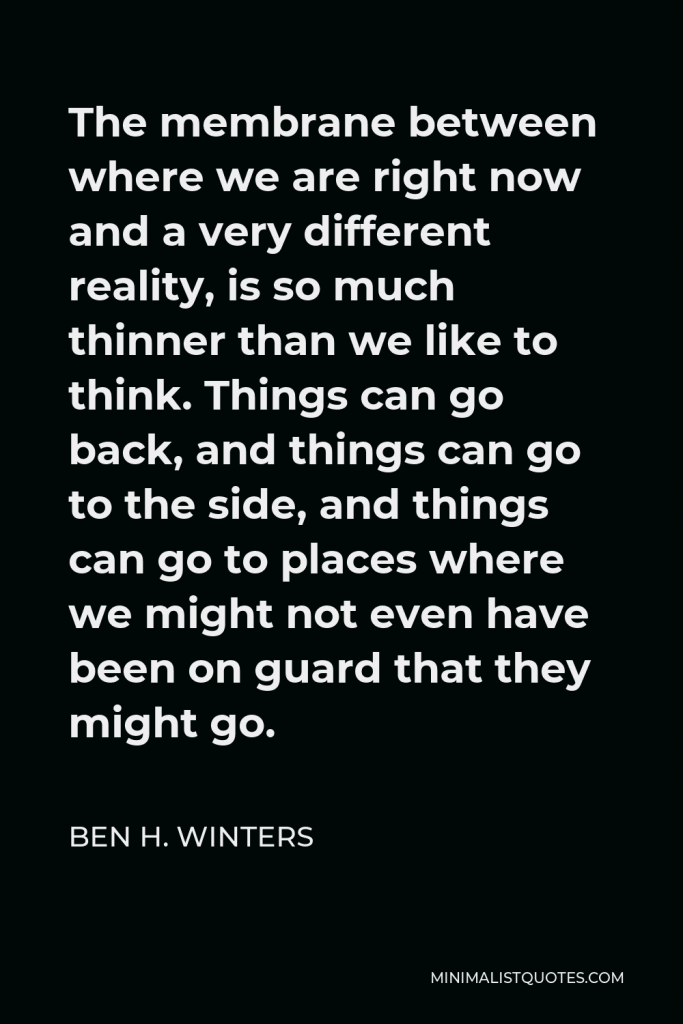

The membrane between where we are right now and a very different reality, is so much thinner than we like to think. Things can go back, and things can go to the side, and things can go to places where we might not even have been on guard that they might go.
BEN H. WINTERS -





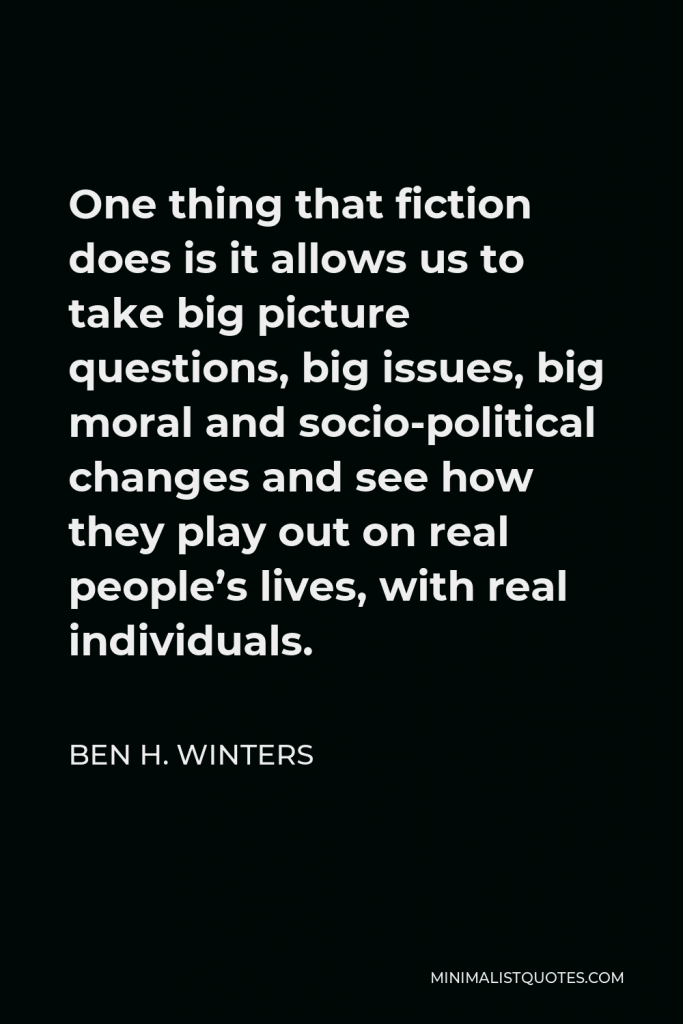

One thing that fiction does is it allows us to take big picture questions, big issues, big moral and socio-political changes and see how they play out on real people’s lives, with real individuals.
BEN H. WINTERS -





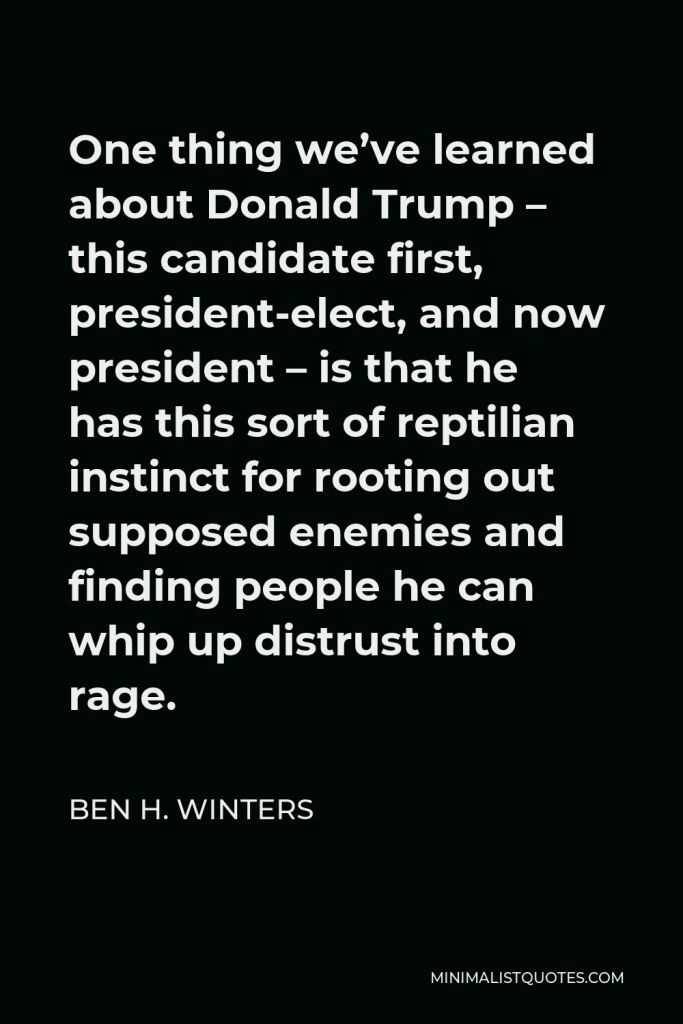

One thing we’ve learned about Donald Trump – this candidate first, president-elect, and now president – is that he has this sort of reptilian instinct for rooting out supposed enemies and finding people he can whip up distrust into rage.
BEN H. WINTERS -





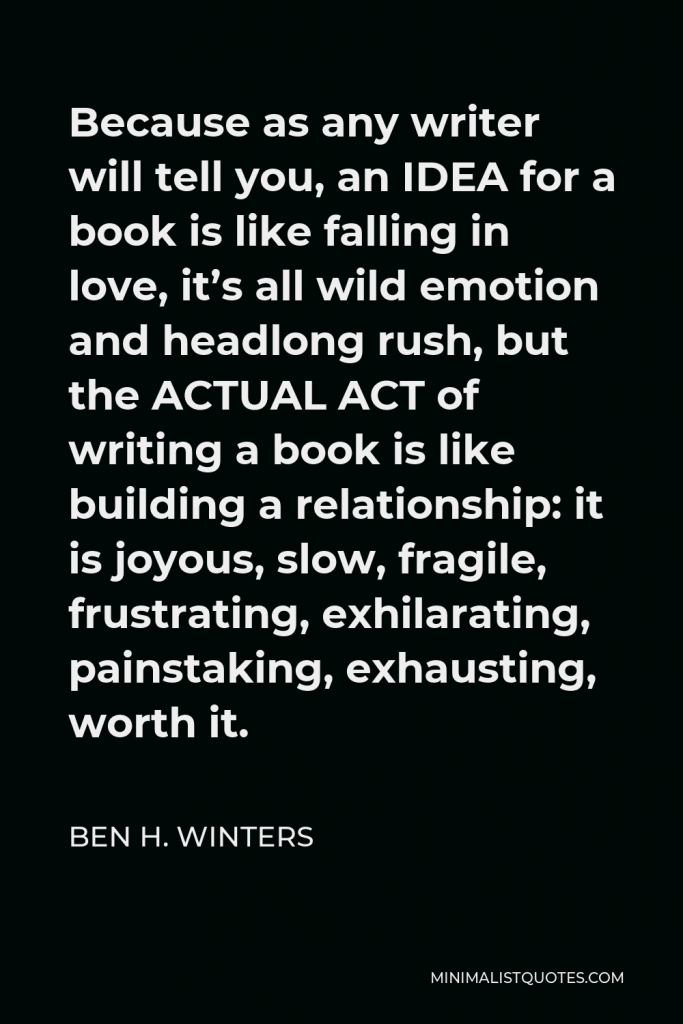

Because as any writer will tell you, an IDEA for a book is like falling in love, it’s all wild emotion and headlong rush, but the ACTUAL ACT of writing a book is like building a relationship: it is joyous, slow, fragile, frustrating, exhilarating, painstaking, exhausting, worth it.
BEN H. WINTERS -





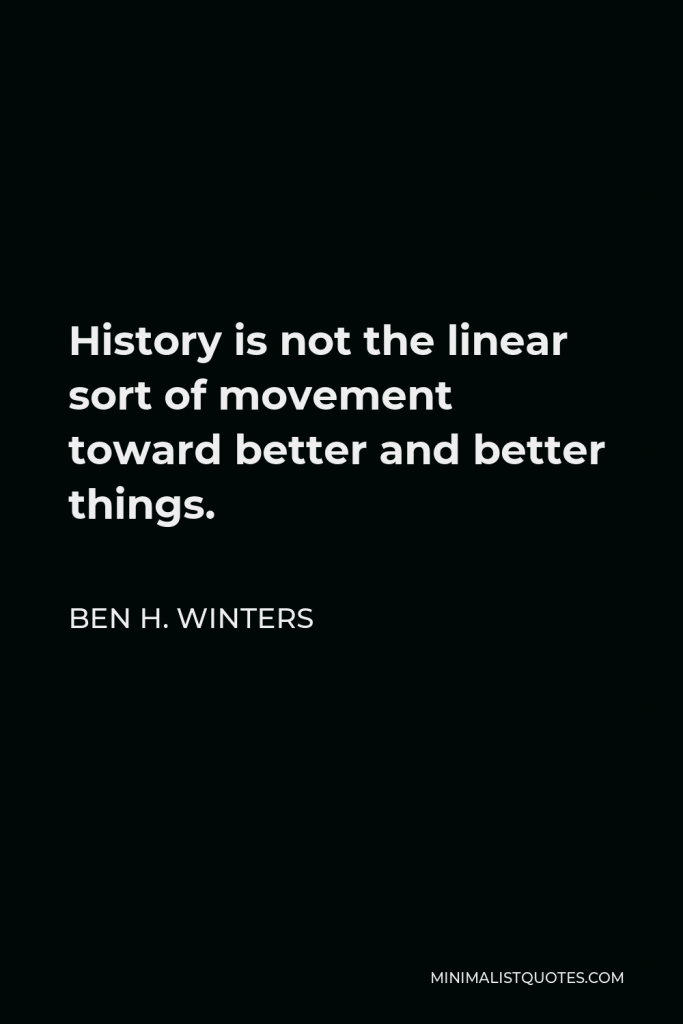

History is not the linear sort of movement toward better and better things.
BEN H. WINTERS -





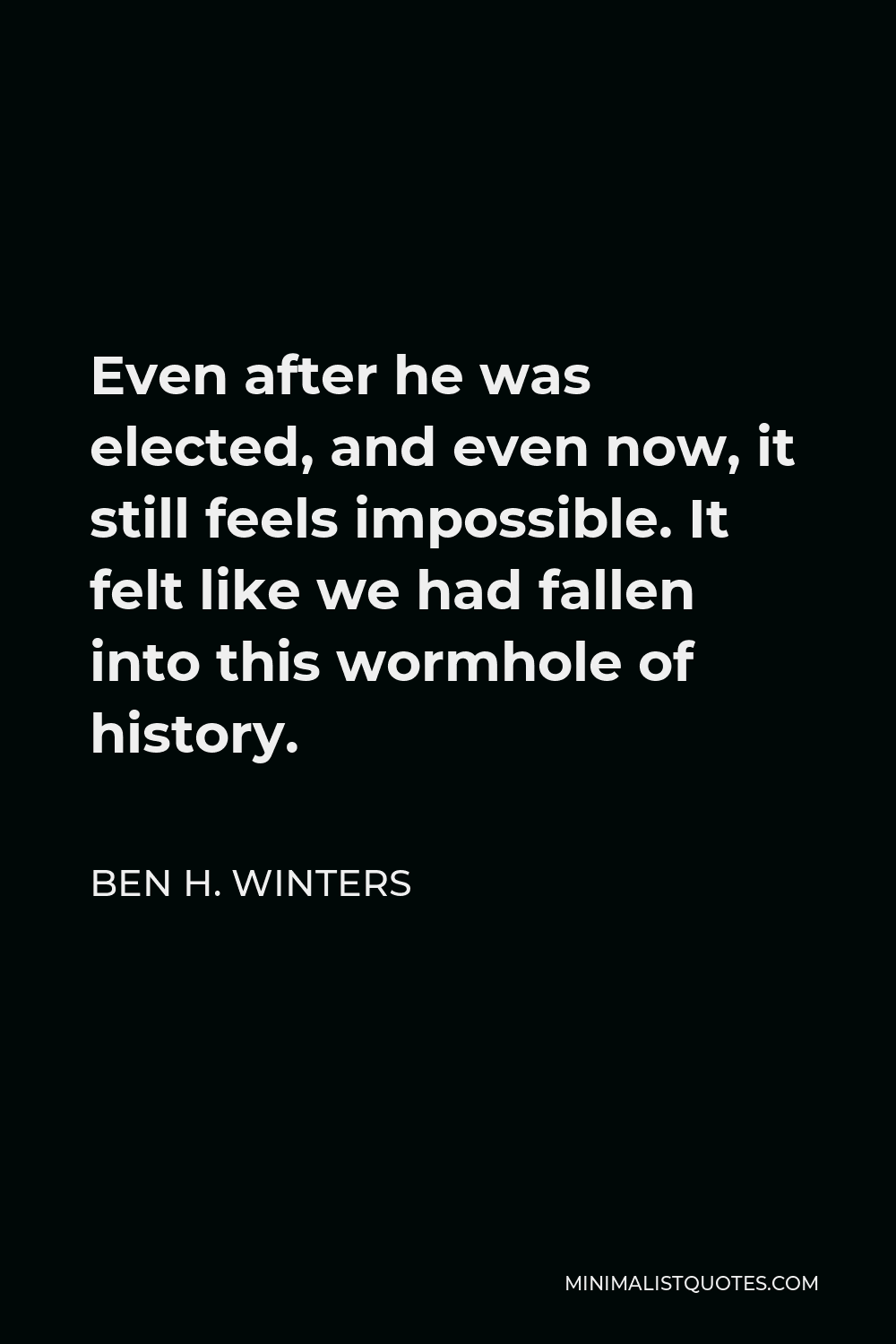
Even after he was elected, and even now, it still feels impossible. It felt like we had fallen into this wormhole of history.
BEN H. WINTERS -





![Ben H. Winters Quote - I think that if there is a great gift that this [Donald Trump] election gave us, is this sort of sense of vigilance, the sense that we have to remain on guard. We have to support our free press.](https://minimalistquotes.com/wp-content/uploads/2022/10/i-think-that-if-there-is-a-great-gift-that-this-do-683x1024.jpg)

I think that if there is a great gift that this [Donald Trump] election gave us, is this sort of sense of vigilance, the sense that we have to remain on guard. We have to support our free press.
BEN H. WINTERS -





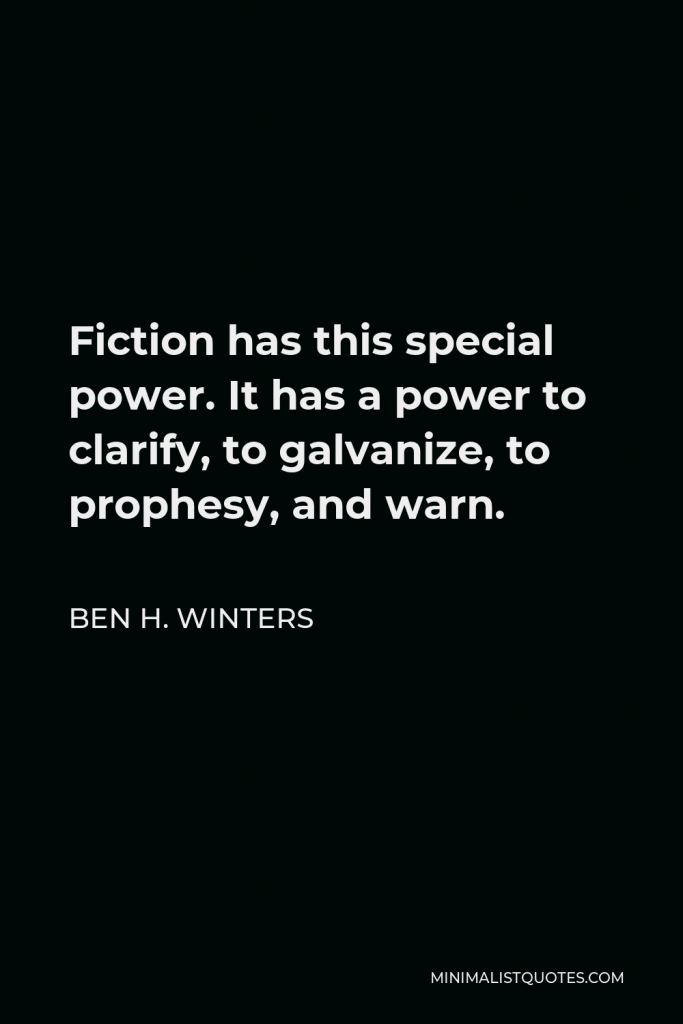

Fiction has this special power. It has a power to clarify, to galvanize, to prophesy, and warn.
BEN H. WINTERS -






The election of Donald Trump is, to me, this very clownish personality with no political experience, who had literally been using fascist slogans in his campaign. It had seemed so impossible.
BEN H. WINTERS -





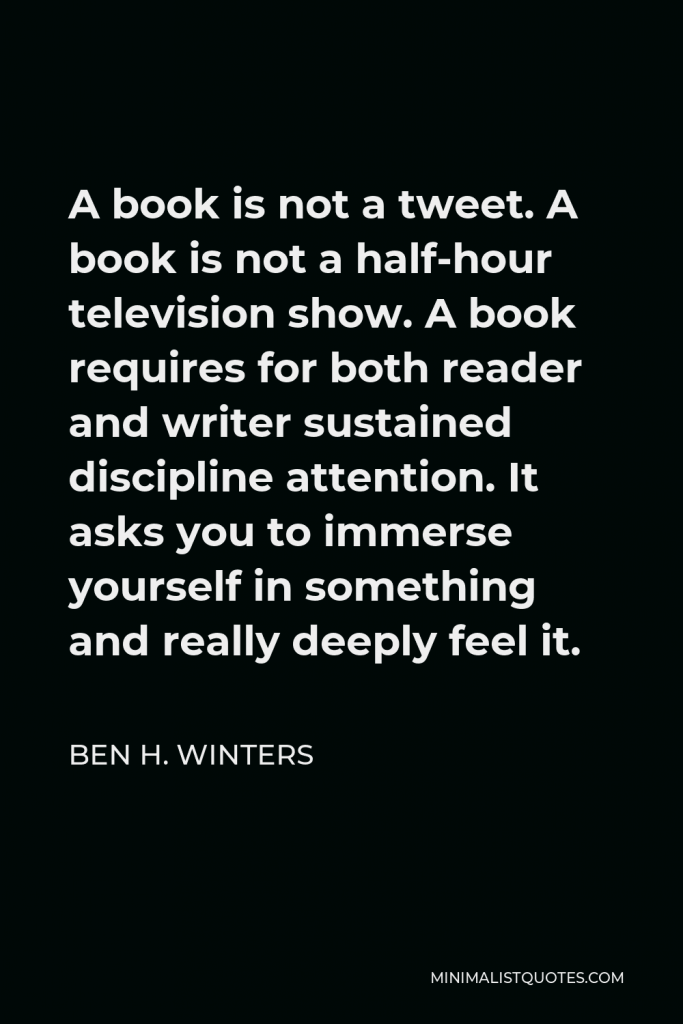

A book is not a tweet. A book is not a half-hour television show. A book requires for both reader and writer sustained discipline attention. It asks you to immerse yourself in something and really deeply feel it.
BEN H. WINTERS
